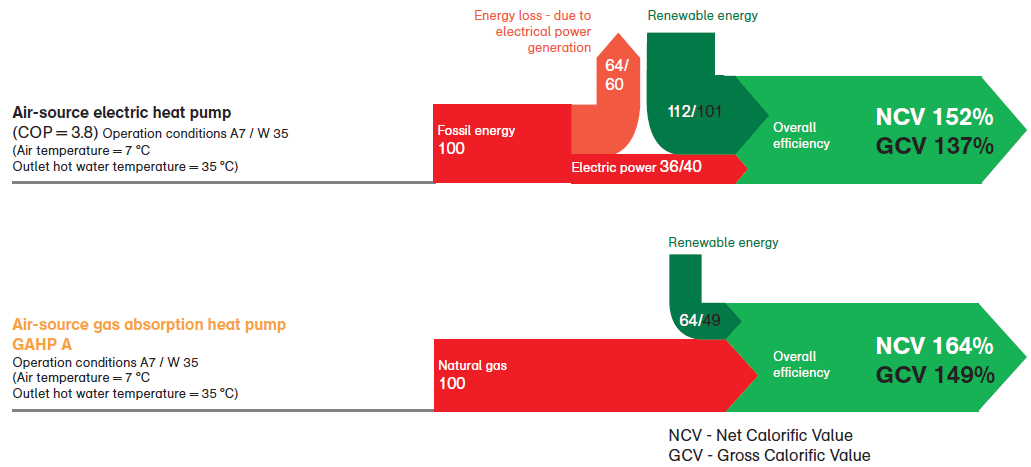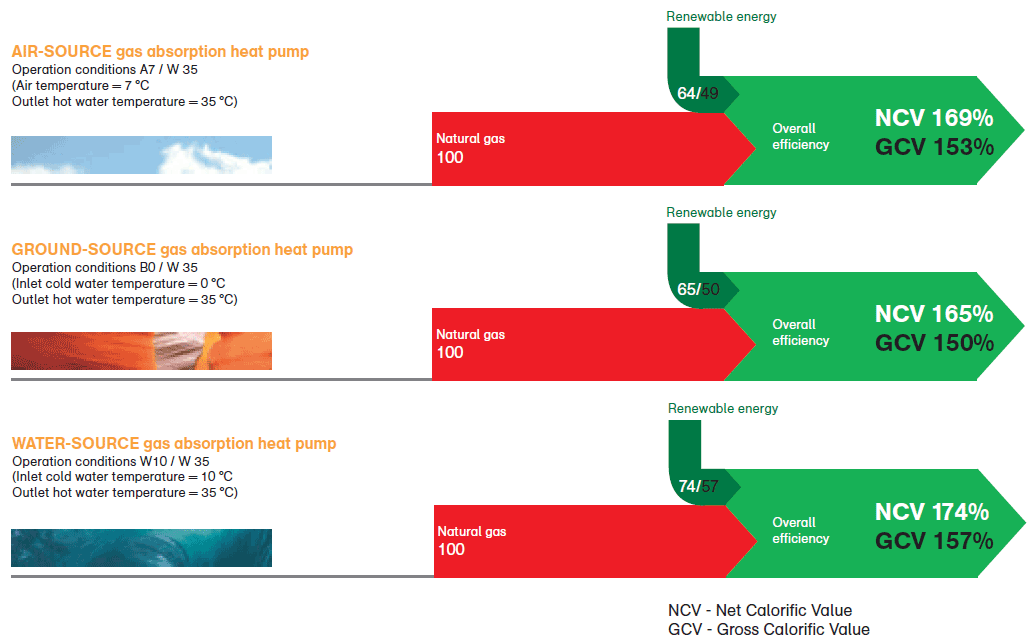
Efficiency and use of renewable energy in heat pumps
A heat pump is an appliance capable of exploiting the large amount of energy available in natural sources at a lower temperature and of tranferring it in the form of useful heat to a user at a higher temperature. Electric heat pumps work with a compressor powered by electricity. Absorption heat pumps are powered directly by natural gas or LPG with a very minor electrical consumption.
The advantage is high heating efficiency, due to the fact that main energy input (natural gas) is primary energy and not electricity, which is generated with low efficiencies (40% on average).
In Fig. A, energy balances are shown between electric heat pumps and Robur absorption heat pumps. The energy balance based on primary energy highlights the higher efficiency of Robur gas absorption heat pumps in comparison to the electricalones (COP of 3.8). In spite of seemingly higher use of renewable energy by electric heat pumps, electric power generation requires higher use of primary energy upstream. A Robur gas absorption heat pump, instead, uses primary energy directly (natural gas or LPG).
In Fig. B energy balances of Robur gas absorption heat pumps are shown for 3 different types of renewable energy sources: air, water and ground.
FIG. A
Air-source absorption heat pump powered by natural gas and renewable energy GAHP vs. electric heat pump.

FIG. B
Efficiency and renewable energy utilization in Gas Absorption Heat Pumps (GAHP).




Comments